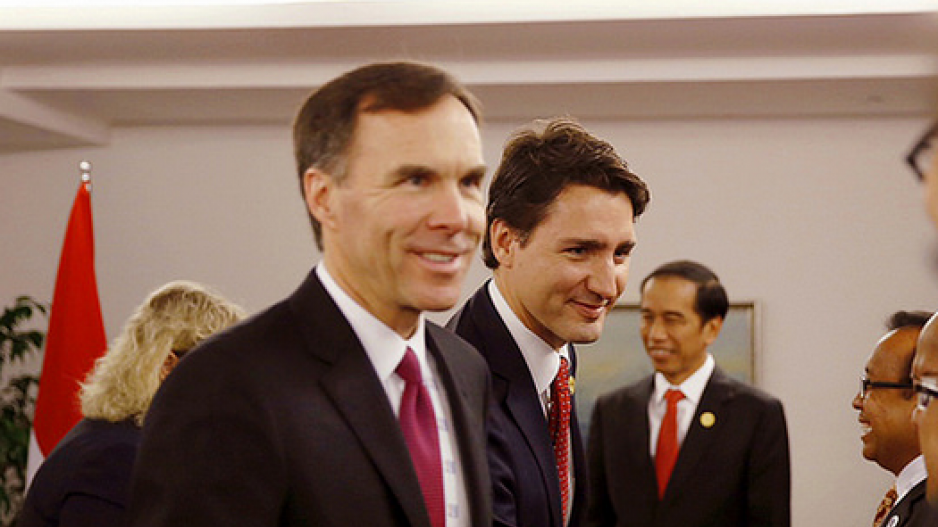The 2019 federal budget released today has numerous new spending initiatives that the Liberals hope will attract voters during this year’s election, however changes to Canada’s tax regime were noticeably absent for businesses.
“Not announcing a much-needed comprehensive tax review in the federal budget is a missed opportunity,” said a spokesperson for Chartered Professional Accountants of Canada in a tweet.
Kevin Milligan, economics professor at the University of British Columbia, agrees that the tax code needs to be continually reviewed and improved. However, he sees it as an ongoing process. Milligan says that continually picking off and fixing smaller aspects of the tax code is a better path towards reform than wholesale changes made by a tax commission.
Many business groups were hoping this budget would address what they perceive to be Canada’s falling competiveness, particularly in the wake of U.S. President Donald Trump’s large-scale corporate tax cuts. However, businesses had little tax relief in today’s budget other than confirmation of the government’s intention to proceed with the accelerated capital cost allowance for equipment purchases announced in November last year.
While some were hoping for large-scale tax changes, others were expecting the current government to slow down on tax reform measures that have in large part defined the Liberal government’s tax agenda.
“We’ve gone through an unprecedented series of changes over the last three years in our tax system,” said Phil Ross, tax partner with accounting firm Grant Thornton LLP. “I think there’s probably an appetite for a pause so that we can come to grips with the changes.”
How urgently Canadian tax reform is needed is up for debate. While many have sounded the alarms concerned that businesses and investments are leaving the country; the data hasn’t borne that out.
Canada had $51.3 billion in foreign direct investment (FDI) in 2018, representing more than 2% of gross domestic product and surpassing the countries long-term median inflow of FDI. Since 2015, Canada’s FDI has only fell below the median for three quarters and hasn’t fallen below 1.58%.
One of the largest tax changes in the budget was the treatment of stock options. People earning more than $200,000 a year in stock options will now face a higher tax rate more inline with the rates paid on other types of income. One concern is what this will do to Canada’s tech ecosystems in places like Vancouver. Many startups use stock options in lieu of salaries as a kind of sweat equity. If the company does well, so do the employees. Milligan says that the $200,000 limit is high enough not to discourage the city’s startup community.
Like corporate taxes, personal tax reform was also not the main focus of the budget, however, households did receive more tax relief than their corporate counterparts. While the budget did not respond specifically to the concerns of business advocacy groups, it did seem to address the complaints from various real estate associations decrying new mortgage rules as making it more difficult for people to enter the housing market. The budget announced some relief for first-time home buyers by increasing the withdrawal limits from their RRSP by 40% to $35,000 from $25,000 for the purchase of their home.
Individuals are also eligible for a new training tax credit of $250 a year up to a lifetime maximum of $5000. This credit can be applied to cover up to one-half of eligible tuition and fees associated with training beginning in the 2019 taxation year. The government also announced a training support benefit under Employment Insurance to help pay for living expenses during training.
“Overall it was a pretty modest budget,” said Will Buckley, accountant and director of Xero Canada. “After the shock of last year’s passive income changes I suppose it would have been nice to look to giving something back to small businesses, even something as simple as streamlining the GST compliance system across Canada which owners are spending 80 hours on a week.”
While the budget did not change much on Canada’s tax front, Buckley says there is a spending initiative that will be of great benefit to many Canadian businesses, the goal of providing every Canadian with high-speed internet access by 2030. This will not only provide the space for entrepreneurs to start new businesses in Canada’s north and rural areas, but it will also provide rural businesses with access to important digital technologies including cloud based computing.




